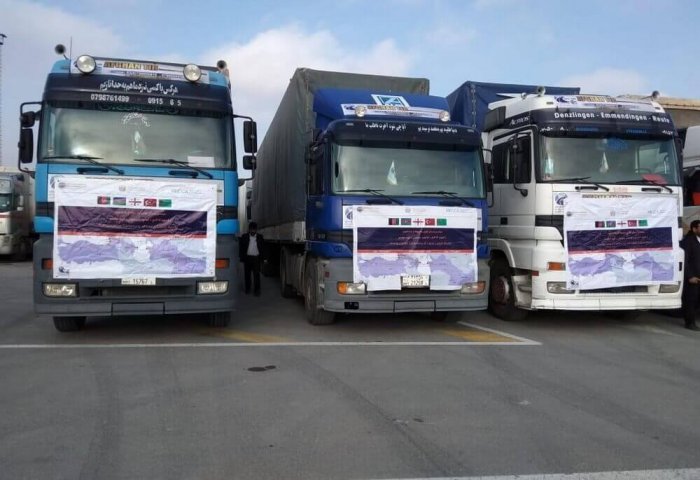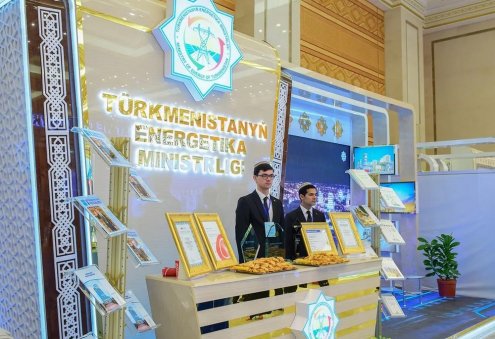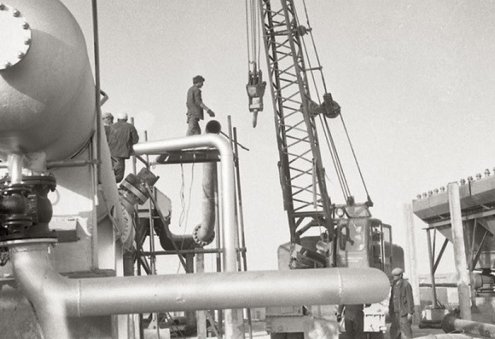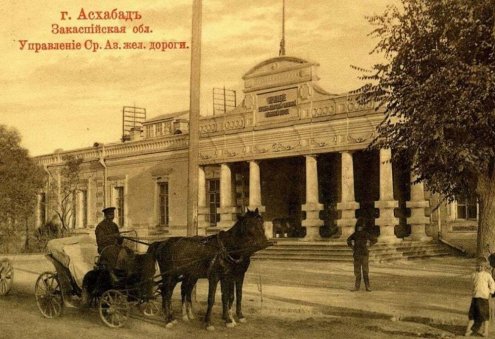Afghanistan, Turkmenistan, Azerbaijan, Georgia, and Turkey signed an agreement in 2017 on the creation of the Lapis Lazuli transport corridor. This corridor is an international transit route that opened in 2018 and connects Afghanistan to Turkey via Turkmenistan, Azerbaijan and Georgia. The name “Lapis Lazuli” is derived from the historic route that Afghanistan's lapis lazuli and other semi-precious stones were exported along, over 2,000 years ago, to the Caucasus, Russia, the Balkans, Europe, and North Africa.
The initiative will serve to strengthen the Government of Afghanistan's National Priority Programs on Infrastructure and Connectivity Development, Energy, Private Sector Development. The Lapis Lazuli corridor is funded by the Asian Development Bank (ADB). The cost of the project is estimated to exceed $2 billion.
Route of the corridor
The Lapis Lazuli corridor begins in Torghundi in western Herat, Afghanistan, and continues to the Turkmenbashi International Seaport in Turkmenistan; after passing the Caspian Sea, the route continues on to Baku, Azerbaijan, and then connects onward to Tbilisi, Georgia, as well as the Georgian ports of Poti and Batumi; finally, the corridor connects to the cities of Kars and Istanbul, Turkey, at the entrance of Europe.
Aims of the corridor
According to the Afghanistan Chamber of Commerce and Industries (ACCI), 80 percent of goods shipped from South Asia to Europe will travel by this route. The corridor aims to lower trade barriers, reduce transaction costs, improved cross-border governance through harmonization, increased trade and transit and enhanced regional cooperation.
According to the International Road Transport Union (IRU), “The support of the Government of Turkmenistan will be essential for the successful development of international transport corridors, in particular the “Lapis Lazuli” corridor,
IRU stated that Turkmenistan's efforts will help to further ensure regional connectivity, prosperity and ultimately peace.
When fully developed, the Lapis Lazuli corridor will lead to a significant improvement in transport infrastructure and procedures, (including for road, rail, and sea), increase exports, and expand the economic opportunities of the countries benefiting from this new transport corridor.
IRU recommends that the five countries move faster to the digitalization of transport documents and procedures, as well as use best practices and global standards to solve other problems when crossing borders. It added that the development of this corridor will also strengthen Turkmenistan’s role as a trade and transit hub in the region.
Turkmenistan joined the International Road Transport (TIR) Convention in 1996.
Nurmyrat Mommayev,
PhD Candidate at Marmara University's Department of Political Science and International Relations in Istanbul, Turkey


















